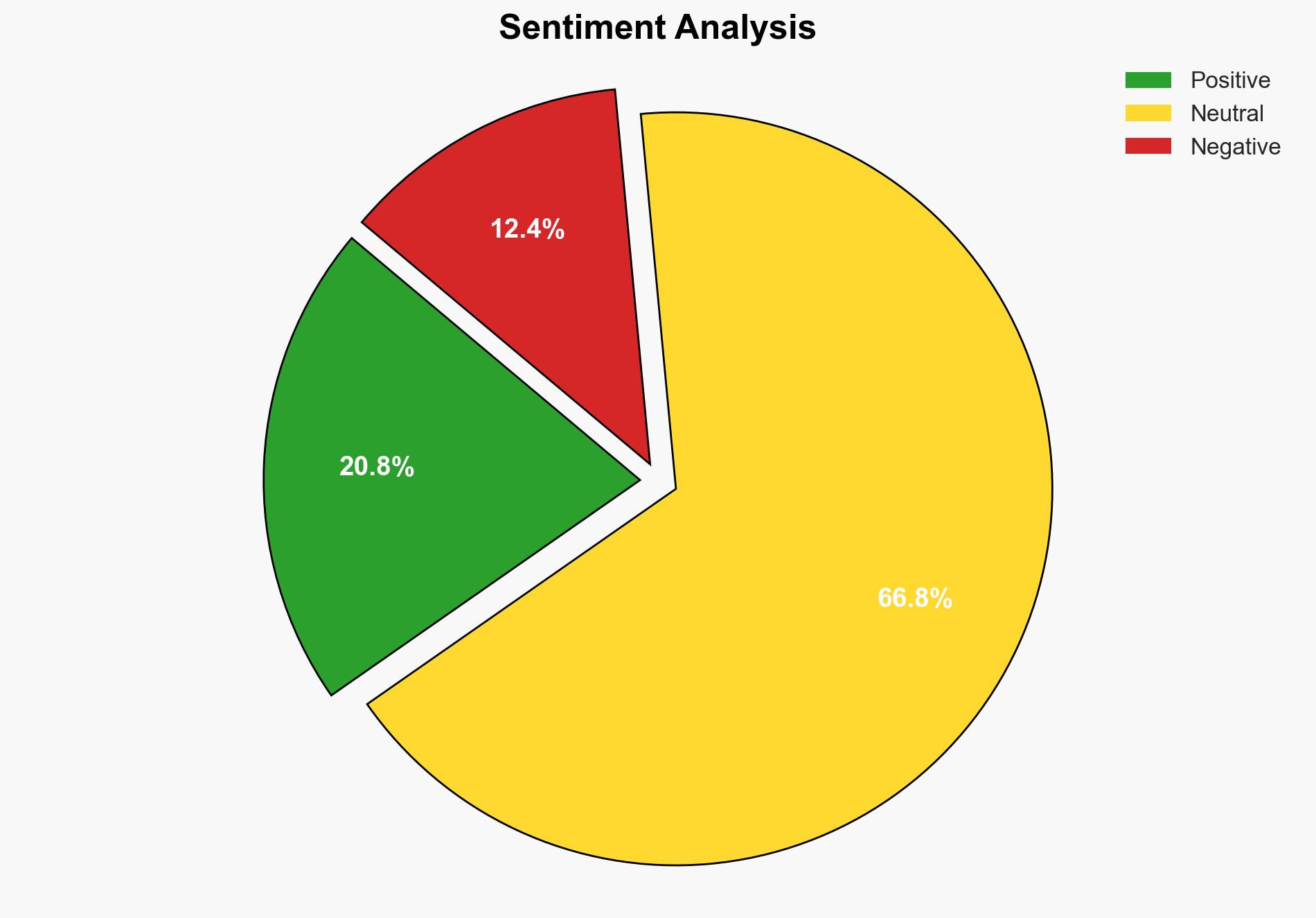European leaders renew support for Ukraine after Zelenskyy’s stormy meeting with Trump – NPR
Published on: 2025-03-01
Intelligence Report: European leaders renew support for Ukraine after Zelenskyy’s stormy meeting with Trump – NPR
1. BLUF (Bottom Line Up Front)
European leaders have reaffirmed their support for Ukraine following a contentious meeting between Volodymyr Zelenskyy and Donald Trump. The meeting highlighted tensions over Ukraine’s defense strategy and the perceived alignment of the Trump administration with Russia. European leaders, including those from the United Kingdom, France, and Germany, have emphasized the importance of continued military support for Ukraine and the need for peace negotiations with Moscow. The European Union and other global leaders have expressed solidarity with Ukraine, underscoring the geopolitical implications of the conflict.
2. Detailed Analysis
The following structured analytic techniques have been applied for this analysis:
SWOT Analysis
Strengths: Unified European support for Ukraine; strong international alliances.
Weaknesses: Internal political divisions within Europe; dependency on U.S. policy direction.
Opportunities: Strengthening NATO alliances; potential for increased economic aid to Ukraine.
Threats: Escalation of conflict with Russia; potential shifts in U.S. foreign policy.
Cross-Impact Matrix
The meeting between Zelenskyy and Trump may influence European-U.S. relations, potentially impacting NATO dynamics and defense strategies. The alignment of European leaders with Ukraine could pressure the U.S. to maintain its support despite internal political shifts.
Scenario Generation
Best-case scenario: Continued European and U.S. support leads to successful peace negotiations and stabilization in Ukraine.
Worst-case scenario: Increased tensions lead to further military escalation and economic instability in Europe.
Most likely scenario: Ongoing diplomatic efforts with intermittent conflicts, maintaining the status quo.
3. Implications and Strategic Risks
The primary risk is the potential for increased military conflict if diplomatic efforts fail. Regional stability is threatened by the possibility of further Russian aggression. Economic interests may be impacted by sanctions and disruptions in trade. The geopolitical landscape could shift significantly if U.S. policy changes under new leadership.
4. Recommendations and Outlook
Recommendations:
- Strengthen diplomatic channels between Europe, Ukraine, and the U.S. to ensure cohesive strategies.
- Enhance military readiness and support for Ukraine through joint exercises and resource allocation.
- Implement regulatory measures to mitigate economic impacts from potential sanctions on Russia.
Outlook:
Projections indicate that European support for Ukraine will remain strong, with potential increases in military aid. The best-case scenario involves successful peace negotiations, while the worst-case scenario could see heightened conflict. The most likely outcome is a continuation of current tensions with periodic diplomatic engagements.
5. Key Individuals and Entities
The report mentions significant individuals and organizations:
- Volodymyr Zelenskyy
- Donald Trump
- JD Vance
- Kier Starmer
- Vladimir Putin
- Emmanuel Macron
- Francois Bayrou
- Douglas Alexander
- Kemi Badenoch
- Ursula von der Leyen
- Pedro Sanchez
- Gitanas Nausda
- Evika Silia
- Edgar Rinkvis
- Jonas Gahr Stre
- Petr Fiala
- Petr Pavel
- Anthony Albanese
- Ulf Kristersson
- Olaf Scholz
- Friedrich Merz
- Annalena Baerbock
- Caspar Veldkamp
- Mustafa Nayyem





